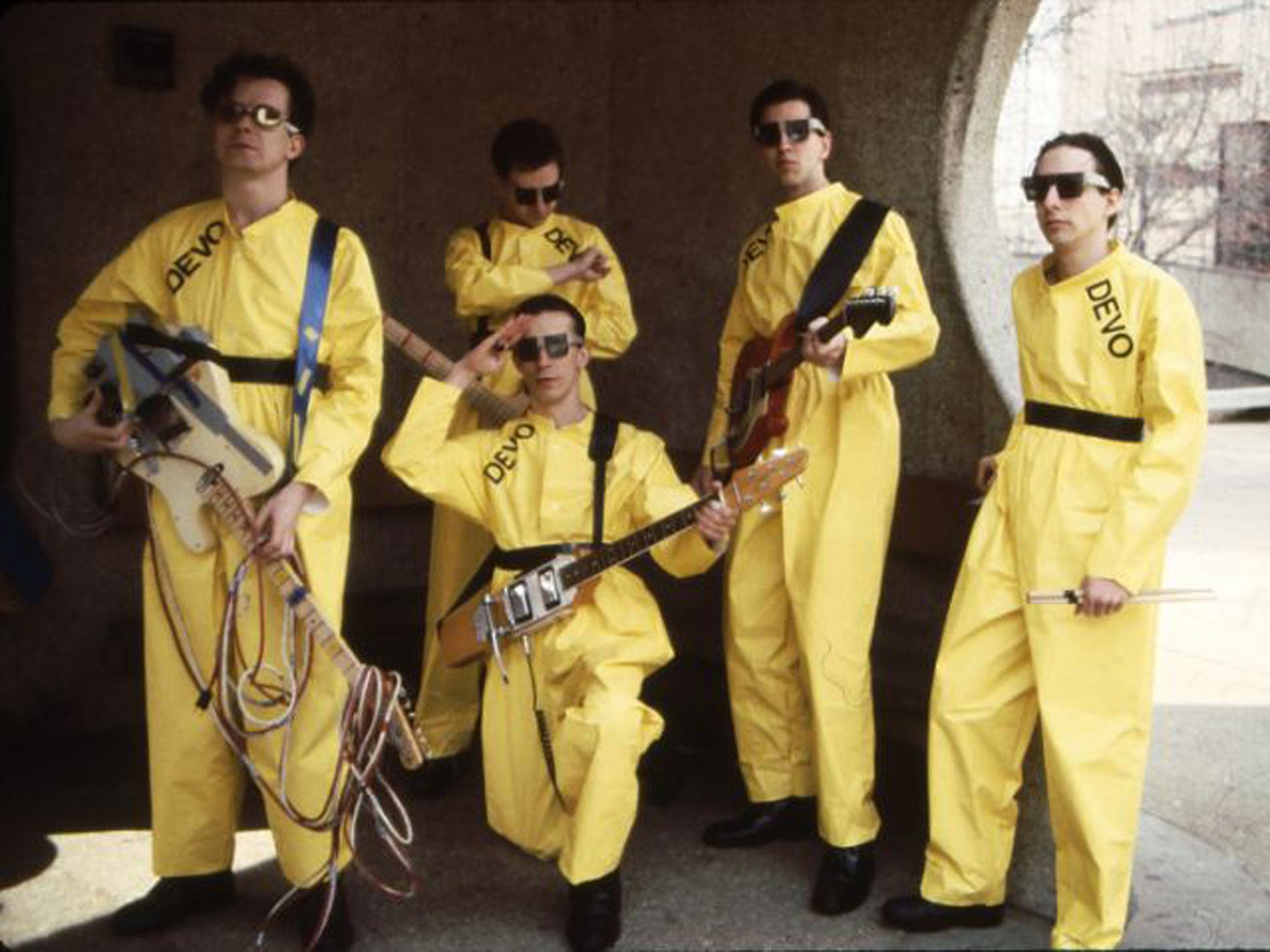
Your support helps us to tell the story
From reproductive rights to climate change to Big Tech, The Independent is on the ground when the story is developing. Whether it's investigating the financials of Elon Musk's pro-Trump PAC or producing our latest documentary, 'The A Word', which shines a light on the American women fighting for reproductive rights, we know how important it is to parse out the facts from the messaging.
At such a critical moment in US history, we need reporters on the ground. Your donation allows us to keep sending journalists to speak to both sides of the story.
The Independent is trusted by Americans across the entire political spectrum. And unlike many other quality news outlets, we choose not to lock Americans out of our reporting and analysis with paywalls. We believe quality journalism should be available to everyone, paid for by those who can afford it.
Your support makes all the difference.The drummer Alan Myers was described by DEVO’s “chief strategist” and his bandmate Jerry Casale as “a human metronome, the catalyst where everything clicked.”
They were a post-modern, satirical group dedicated to exploring “de-evolution”, the notion that American society was regressing, a concept that Casale and his friend Bob Lewis embraced while studying at Kent State University in Ohio in the late 1960s, and went on to score unlikely but influential hits on both sides of the Atlantic, most famously in 1980 with the synth-pop classic “Whip It”.
Born in Lebanon, Pennsylvania, Myers took up drumming in his teens. His unusual style, relying as much on what he left out as the fills he played, owed a debt to John “Drumbo” French of Captain Beefheart & His Magic Band. He joined DEVO in 1976. “We were mostly in garages writing songs. Alan brought everything to life,” said Casale, the band’s bassist, who had by then drafted his brother, Bob II, on guitar to play alongside the vocalist and co-writer Mark Mothersbaugh, and his brother, Bob I, on lead guitar. Myers replaced another Mothersbaugh brother, Jim, in what became the definitive, yellow boiler-suit clad line-up of DEVO that graced the covers of the New Musical Express and Melody Maker in 1978.
By then, the British music press had fallen for the discordant sounds emanating from Akron, Ohio, “Rubber Capital of the World” and DEVO’s hometown. The Stiff label licensed the group’s “Mongoloid”/“Jocko Homo” single and their jerky, disconstructed, version of “(I Can’t Get No) Satisfaction” which made the most of Myers’ motorik beat and rejuvenated the Rolling Stones’ critique of consumerism. Including rerecorded versions of all the aforementioned, produced by Brian Eno, and issued by Virgin in Europe and Warner Brothers in the rest of the world, the band’s 1978 debut Q: Are We Not Men? A: We are DEVO! is now acknowledged as a landmark release.
The quirky group also tapped into the mainstream with their adaptations of ‘’Secret Agent Man’’ and Allen Toussaint’s ‘’Working In A Coalmine’’ as well as the albums Duty Now For The Future (1979), Freedom Of Choice (1980) and New Traditionalists (1981), when they replaced their trademark energy domes – red flowerpot hats, in fact – with plastic wigs approximating the hairstyle of the late John F Kennedy. Myers also played on the less successful albums Oh, No! It’s DEVO (1982) and Shout (1984) which relied more on drum machines, a fact that led to his departure the following year. “I begged him not to quit DEVO. He could not tolerate being replaced by the Fairlight and autocratic machine music. Losing him was like losing an arm,” said Casale, who also recalled the drummer’s interest in Tai Chi. “Some bands would be doing drugs and drinking. Alan would find quiet places backstage and do a full session of Tai Chi.”
DEVO broke up in 1991 but reunited four years later with session drummer extraordinaire Josh Freese, a disciple of Myers, in his stead. In 2010, they issued their first studio album in 20 years. While his former bandmates went on to soundtrack the children’s TV series Rugrats and direct videos and commercials, Myers worked as an electrician and occasionally gigged with his wife or daughter. He died of brain cancer.
Alan Myers, drummer: born Lebanon, Pennsylvania 1954 or 1955; married (one daughter); died Los Angeles 24 June 2013.
Subscribe to Independent Premium to bookmark this article
Want to bookmark your favourite articles and stories to read or reference later? Start your Independent Premium subscription today.
Join our commenting forum
Join thought-provoking conversations, follow other Independent readers and see their replies
Comments